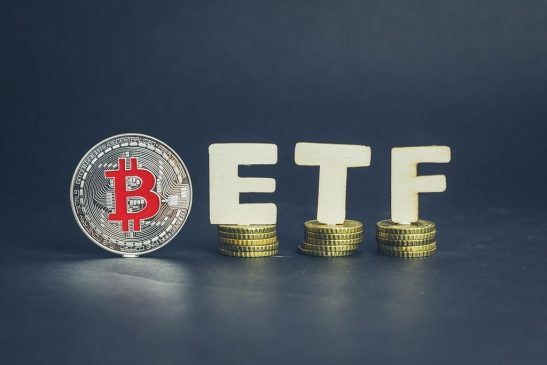Even though last week a lot of sources were reporting about Japan’s approving Bitcoin ETFs as an alternative to Bitcoin futures, it seems that this will not be the case after all.
The reports led to an increase in anticipation toward the approval of the VanEck Bitcoin ETF filing that is set to be decided by the U.S. Securities and Exchange Commission (SEC) by the end of February, as the emergence of strictly regulated investment vehicles in a major market like Japan would decrease the risk of price manipulation.
Just for reminder, last month SEC announced that once again is delaying its decision on the rule change for a VanEck’s Bitcoin exchange-traded fund. The new deadline is February 27, 2019.
The Bitcoin ETF that was proposed by money manager VanEck and SoldiX in partnership with CBOE BZX exchange has been delayed for the third time by the SEC in Thursday’s circular. SEC then stated:
“The Commission finds it appropriate to designate a longer period within which to issue an order approving or disapproving the proposed rule change so that it has sufficient time to consider this proposed rule change.”
We already wrote of how Japan’s Financial Services Agency (FSA) declined to modify domestic legislation to allow crypto derivatives, like futures and options products, back in December 2018. However, it seemed that the financial watchdog was quite optimistic about exchange-traded funds and is mulling over the approval for crypto ETFs in the country.
An anonymous source last week stated that the Financial Services Agency is currently gauging industry interest in ETFs tracking digital currencies. Last month, Japan’s financial regulator barred such instruments as Bitcoin futures or Ethereum options to avoid stoke speculation, which was a setback for investors.
The decision to not allow trading crypto derivatives on financial exchanges is a way of protection. A year ago, Japan’s Tokyo-based exchange Coincheck reported having lost $500 million worth NEM tokens overnight, which left the global cryptocurrency market in a big shock. FSA then raided Coincheck in order to “ensure the preservation of clients’ assets.”
However, in a newest statement, an FSA spokesperson said that the agency does not recognize the necessity of any cryptocurrency-related derivatives as of now, solidifying its stance against both crypto ETFs and futures products.
They said:
“There is no such fact that we are considering approving ETFs which track crypto-assets at present … we are not currently considering approving them.
Taken it into consideration that it is difficult for us to find constructive and social significance of trading crypto-assets derivatives at present, we think that there is no need for trading crypto-assets derivatives at financial instruments exchanges where many market participants are able to trade.”
Self-Regulation as a Major Part in the Ecosystem
The FSA has recently published newly-proposed rules for crypto operators based on discussions and conclusions from 11 study group meetings. Self-regulation will play a major part in the ecosystem. In October, the agency approved the Japan Virtual Currency Exchange Association (Jvcea) as a self-regulatory organization (SRO).
When Japan legalized cryptocurrencies as a means of payment in April 2017, initial coin offerings (ICOs) and their tokens were not included. However, with the growing interest in token sales as a fundraising method, the FSA has turned its attention to the matter. The agency recently published a document outlining key areas which will be addressed in upcoming regulations.
The FSA will focus on “investment-type ICOs” and will “clarify that soliciting investments by funding virtual currency is subject to financial regulations,” the document reads.
Be it as it may, SEC will definitely have a handful since last week crypto index fund provider Bitwise Asset Management also applied to launch a new bitcoin-backed exchange-traded fund (ETF).
The company has filed an initial registration form proposing the Bitwise Bitcoin ETF Trust with the U.S. Securities and Exchange Commission (SEC). The fund would track the Bitwise Bitcoin Total Return Index, which measures the value of Bitcoin plus any “meaningful hard forks.”
If the ETF is approved, its shares will be listed on NYSE Arca, which focuses on trading stocks and options (rather than large-cap stocks, which are traded on the New York Stock Exchange).
Throughout the past several months, ten ETFs have been rejected by the U.S. SEC for various reasons including manipulation and security risks.




